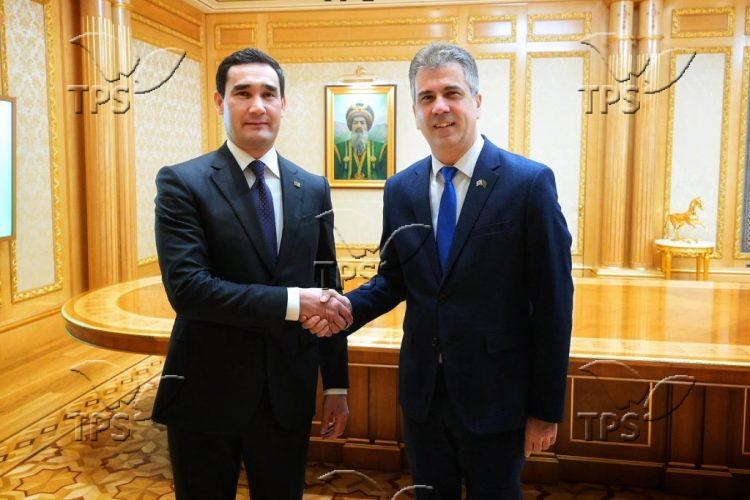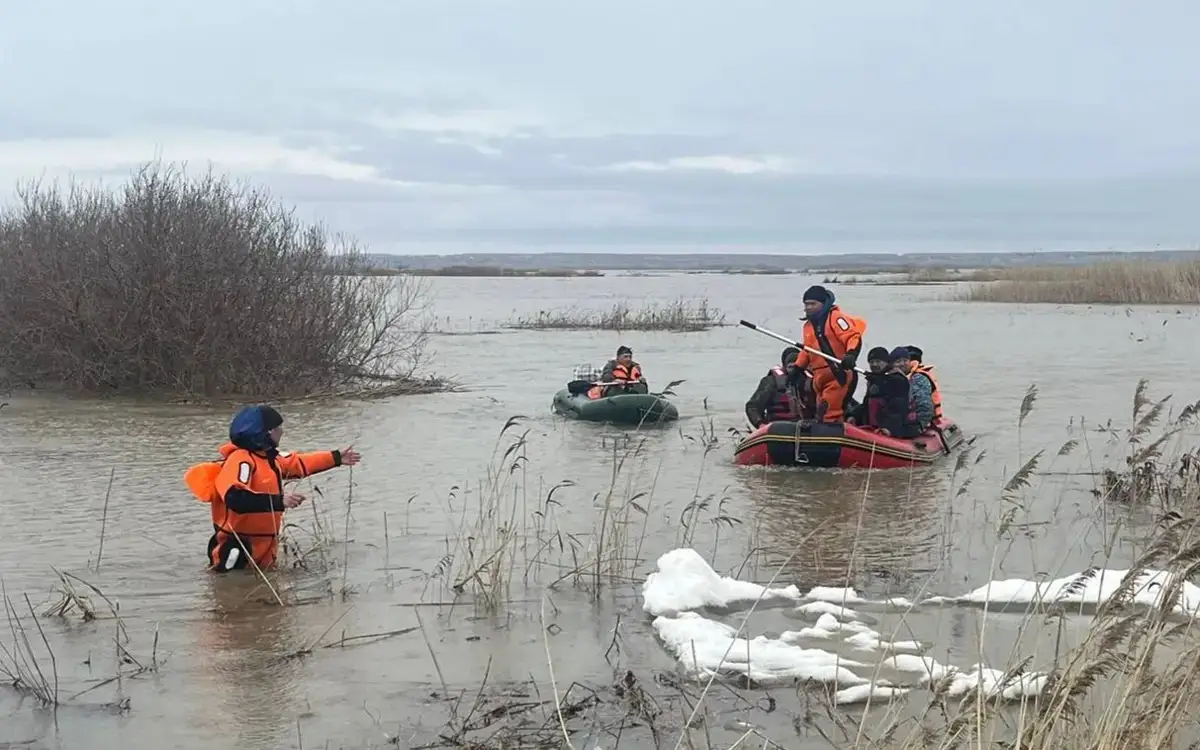Israel’s Path to Expanding Ties in Turkmenistan, Azerbaijan Ran Through Turkey
Jerusalem, 20 April, 2023 (TPS) -- As Israel continues to deepen its ties in Central Asia with Foreign Minister Eli Cohen visiting Turkmenistan and Azerbaijan, an expert explained that the diplomatic path to these breakthroughs led through Turkey.
After visiting Azerbaijan with a delegation of Israeli business leaders, Cohen flew to Ashgabat, Turkmenistan, where he held talks with Turkmen President Serdar Berdimuhamedow on Thursday. The two discussed cooperation in the areas of border protection, cyber security, water management and agricultural technologies. Berdimuhamedow said he is considering opening an embassy in Israel.
Cohen is due to inaugurate the Israeli embassy in Turkmenistan, a predominantly Sunni Muslim country.
Israel and Turkmenistan established relations in 1992 soon after the Central Asian nation became independent following the breakup of the Soviet Union. Israel has had an ambassador in Ashgabat for over a decade, but envoys worked out of temporary offices.
Professor Ze’ev Khanin, who lectures on political science at Bar-Ilan University, told the Tazpit Press Service that the timing of the visit stemmed from Israeli-Turkish rapprochement.
“There’s a relaxation of tensions between Turkey and Israel. Azerbaijan, Kazakhstan and Turkmenistan saw this,” Khanin said, explaining that those countries are ethnically Turkic.
Turkey’s new ambassador to Israel presented his credentials to Israeli President Isaac Herzog in January after not having ambassadors in each other’s countries since 2018. Further goodwill came through Israeli humanitarian aid to Turkey following a devastating earthquake in February which killed more than 58,000 people in Turkey and Syria.
“Israel’s been in Turkmenistan for a substantial amount of time. Israeli companies are working there and [Cohen’s visit] is a sort of formalization of ties that are already there,” Khanin said.
Central Asia, he explained, “is part of the Muslim world, but the region is not Islamist.”
Turkmenistan, a nation of 6.3 million, is interested in Israeli expertise, particularly in the areas of energy, security, agricultural technology and tourism projects.
“Opening an Israeli embassy will promote all that,” Khanin said.
Much has been made of the fact that the Israeli embassy is just 20 km from Iran. Turkmenistan and Iran share a 1,148 km-long border. But Khanin stressed that Israel’s open presence would serve as a counterweight to Iranian influence inside the Central Asian country.
In Turkmenistan, “Iran has some influence, maybe substantial,” Khanin explained. “Israel can’t push Iran out, but it can present alternatives.”
He added that the Turkmens are pragmatic, so, “if the relationship brings trade and profit, they’ll continue. But if relations with China or Iran are more profitable they’ll consider moving more in their direction.”
Asked about dealing with Berdimuhamedow’s authoritarian government, Khanin noted that “Europe and the US don’t have problems with authoritarian regimes in China or Asia. It’s just a matter of interests everywhere.”
Said Khanin, “Turkish countries are ready to openly cooperate with Israel, so why not now? There’s no need to hide it.”







